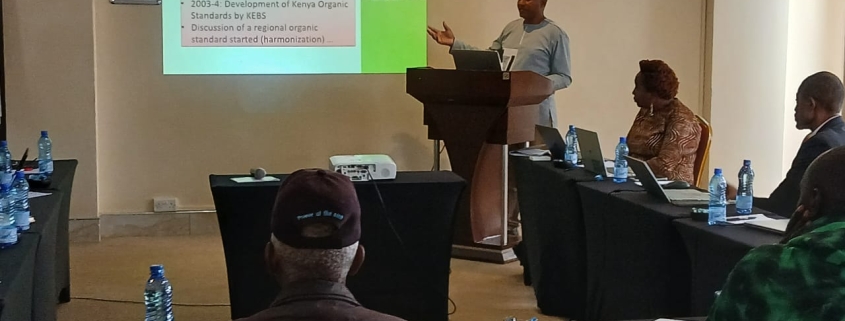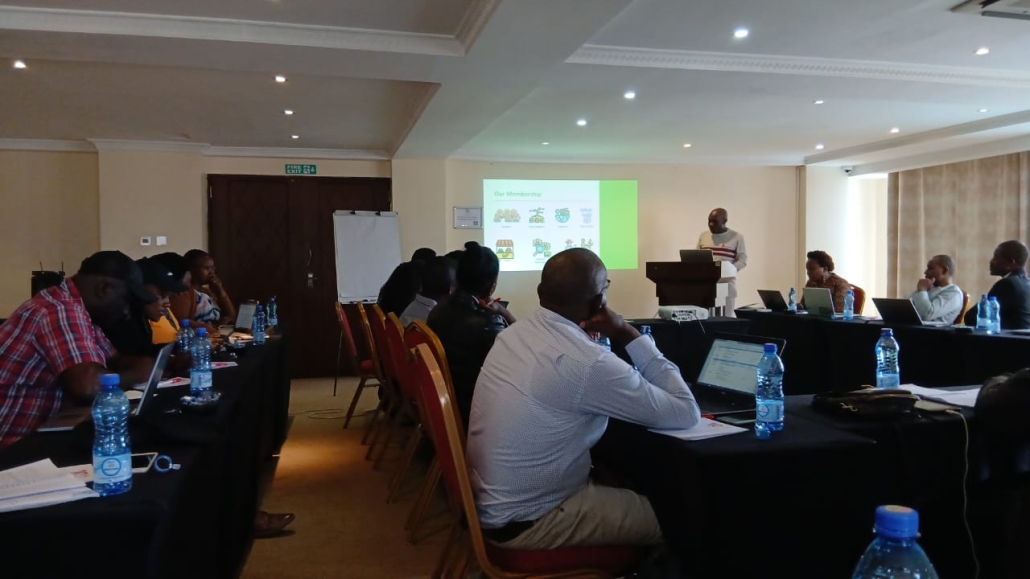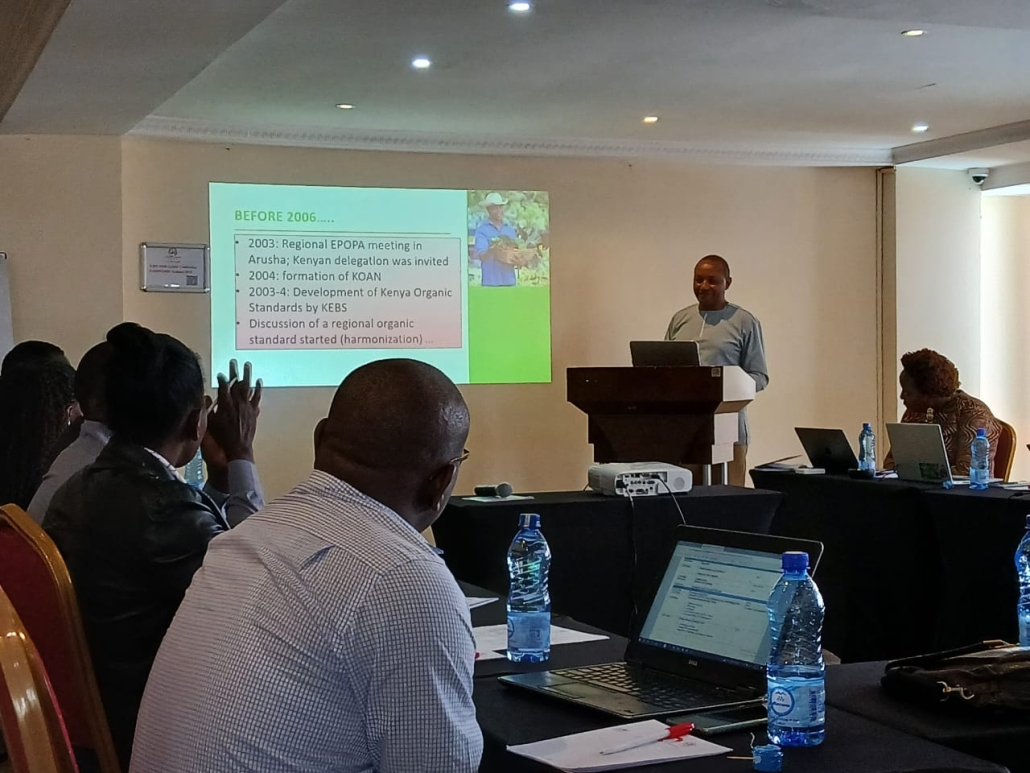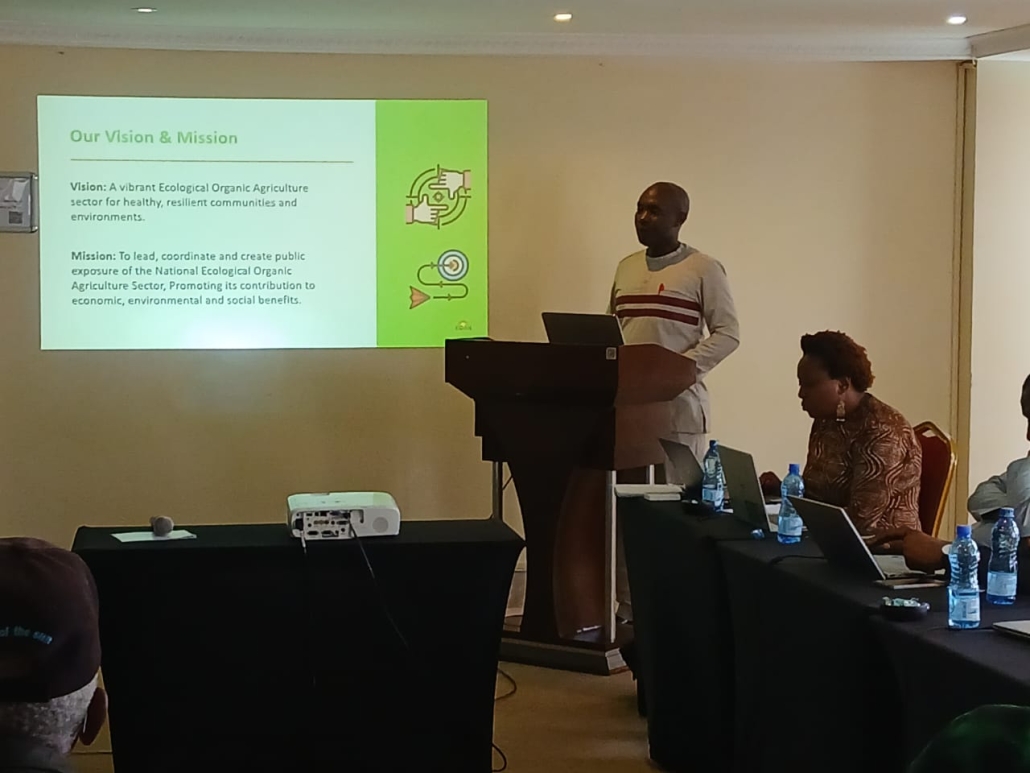Stimulating Organic Trade using EAOPS (Kilimohai Mark): Companies in Kenya join hands through the AFPQ Project
On 31st July and 1st August 2025, the Kenya Organic Agriculture Network (KOAN) joined regional stakeholders at the Gelian Hotel, Machakos for a two-day workshop on strengthening regional organic trade under the African Free Continental Trade Area (AfCFTA) framework. The event was part of the GIZ-AFPQ Project, coordinated by Biovision Africa Trust (BvAT) with support from implementing partners KOAN (Kenya), NOGAMU (Uganda), and TOAM (Tanzania).
Represented by Samuel Ndung’u (Programmes Manager), Wycliff Nyamao (Project Officer), and Mary Melicer Otieno (Programmes Assistant and Office Administrator), KOAN played an active role in shaping conversations around the East African Organic Products Standards (EAOPS), also known as the Kilimohai Mark, which has become a unifying mark of trust for organic trade across Eastern Africa.
Validating findings and identifying gaps
A key highlight of the workshop was the presentation and validation of findings from the baseline study on organic trade in Eastern Africa, which assessed market trends, compliance levels, gaps, and opportunities for growth. Stakeholders including certification bodies, national bureaus, and private sector players engaged in rich discussions on how to make recommendations more actionable and relevant to country-specific contexts.
For Kenya, the study highlighted both opportunities for expanding organic exports and the need to address capacity gaps among companies seeking to comply with EAOPS. KOAN facilitated group discussions that allowed participants to test the Training Needs Assessment (TNA) tools and identify priority areas where businesses require capacity building to fully embrace regional trade opportunities.
KOAN delivered key presentations on:
• The role of KOAN in advancing organic agriculture in Kenya, including market development, certification support, and policy advocacy.
• The history, development, and ongoing review of EAOPS (Kilimohai Mark) as a driver of cross-border trade, credibility, and consumer trust in organic products.
These sessions set the stage for conversations on how companies can leverage the Kilimohai Mark to build competitiveness in regional and continental markets under AfCFTA.
Regional Collaboration and Future Prospects
The workshop also featured an introduction to the African Regional Standards Organization (ARSO), reinforcing the importance of aligning EAOPS with continental trade frameworks to ease the movement of organic goods across borders. Collaborative discussions underscored the need for harmonized standards, stronger certification systems, and robust consumer awareness to unlock trade potential.
As the event concluded, stakeholders agreed on the importance of capacity building, regional collaboration, and market development as the next steps for scaling organic trade in Eastern Africa. For KOAN, the workshop reaffirmed its commitment to championing the adoption of EAOPS, strengthening partnerships, and ensuring that Kenyan companies are well-prepared to seize opportunities presented by AfCFTA.









